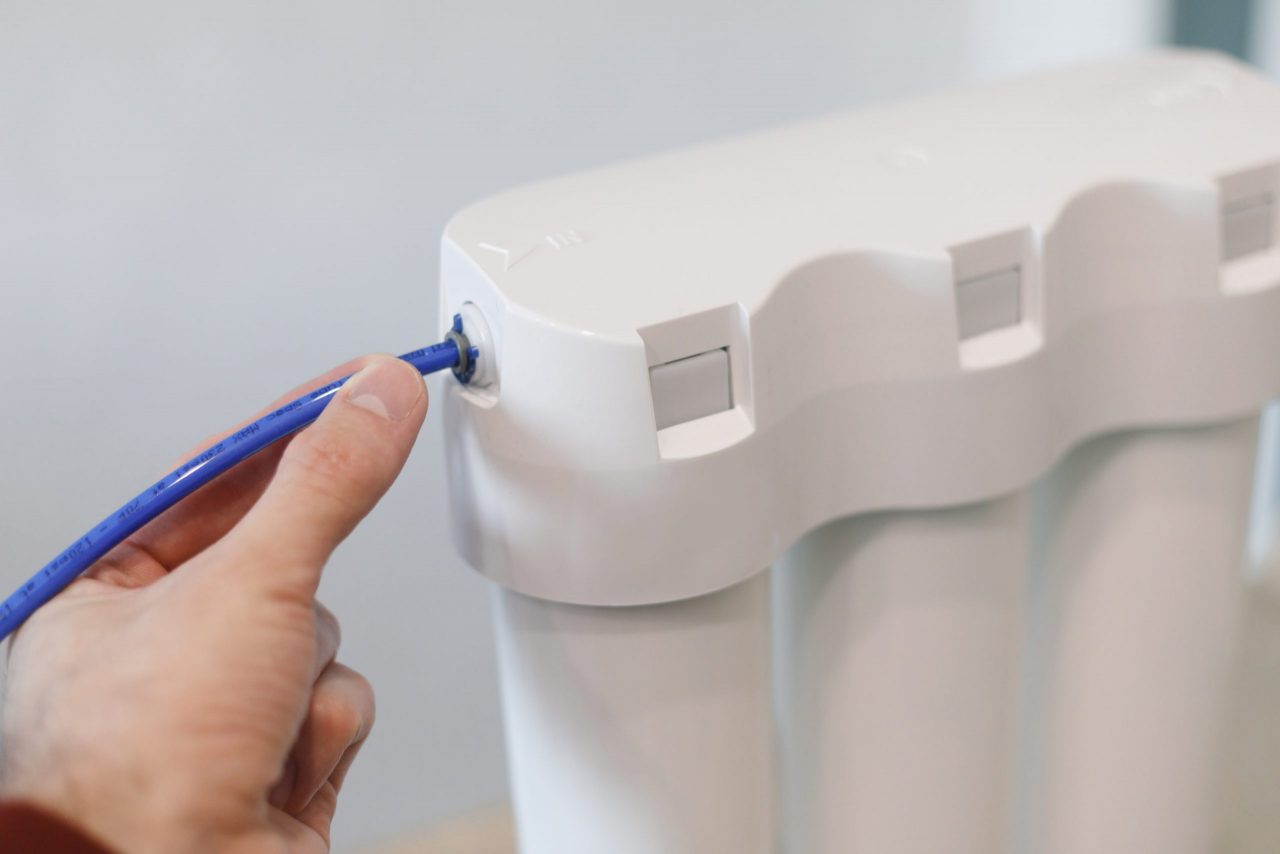In any laboratory we require the use of drinking water to fulfill some basic functions within them, such as: repair solutions, safely wash laboratory materials, perform experiments; there are several processes that are carried out to obtain drinking and ultrapure water, some are used combined, however, one of those processes is the water purification system making use of deionization process, allowing to obtain water free of loose ions.
Deionization is a process that works by replacing negative and positive molecules in water with positive hydrogen and negative hydroxyl molecules, thus releasing water from elements such as sodium, calcium, iron, copper, among others; by obtaining this deionized water we can use it for scientific experiments, or in industrial processes, highlighting that this system does not eliminate organic particles such as bacteria and viruses, nor organic contaminants.
Deionized water.
This water is a liquid free of cations such as sodium, calcium, iron, copper, among others, and free anions such as carbonate, fluoride, chloride and others; deionized water can change its pH easily to be stored, according to some experts it is important to know that deionized water by not carrying salts if it is consumed directly by the human causes harmful anemia, because carbon dioxide dissolves easily and acidifies the water, so it would be dangerous for the body.
The use of this water isrestricted to laboratories, where loose ions can cause alterations in the required results, there are a large number of applications of this water in industries, research, experiments, other researchers point out that it is a myth that this water is harmful to health, of course it is in limited consumption.
Uses and applications of deionized water.
Deionized water is used in many research and scientific fields, due to the need to perform ion-free experiments that may affect the results that are required, it is also used in laboratories that require water that does not conduct electricity,so these water purification systems throughdeionization are used in applications ranging from water reuse to polishing in the pharmaceutical and laboratory industries, in high-pressure boiler/turbine applications.
Water treatment can be beneficial in cooling and anointing machines along with other applications, manufacture of pharmaceuticals, cosmetics and processed foods, also used in car washes for final rinsing, for laboratory and power plant testing; textile industries, chemical industry, hospitals, automobiles and batteries, ion exchange plants, breweries, oil and gas sector among others.
Types of water deionization systems
- Deionization by mixed bed.
- By ion exchange.
We offer you more information about the different types of systems for water purification, their advantages and disadvantages; do not hesitate to contact us KALSTEIN through the website, we are a manufacturer of laboratory equipment of international coverage with the best offers in sales / purchase online, we can advise you about which is the best water purification system corresponding mainly to the range of applications for which its use is required; if you have doubts about which one to buy or install, we will help you, in addition to offering you the best products HERE

